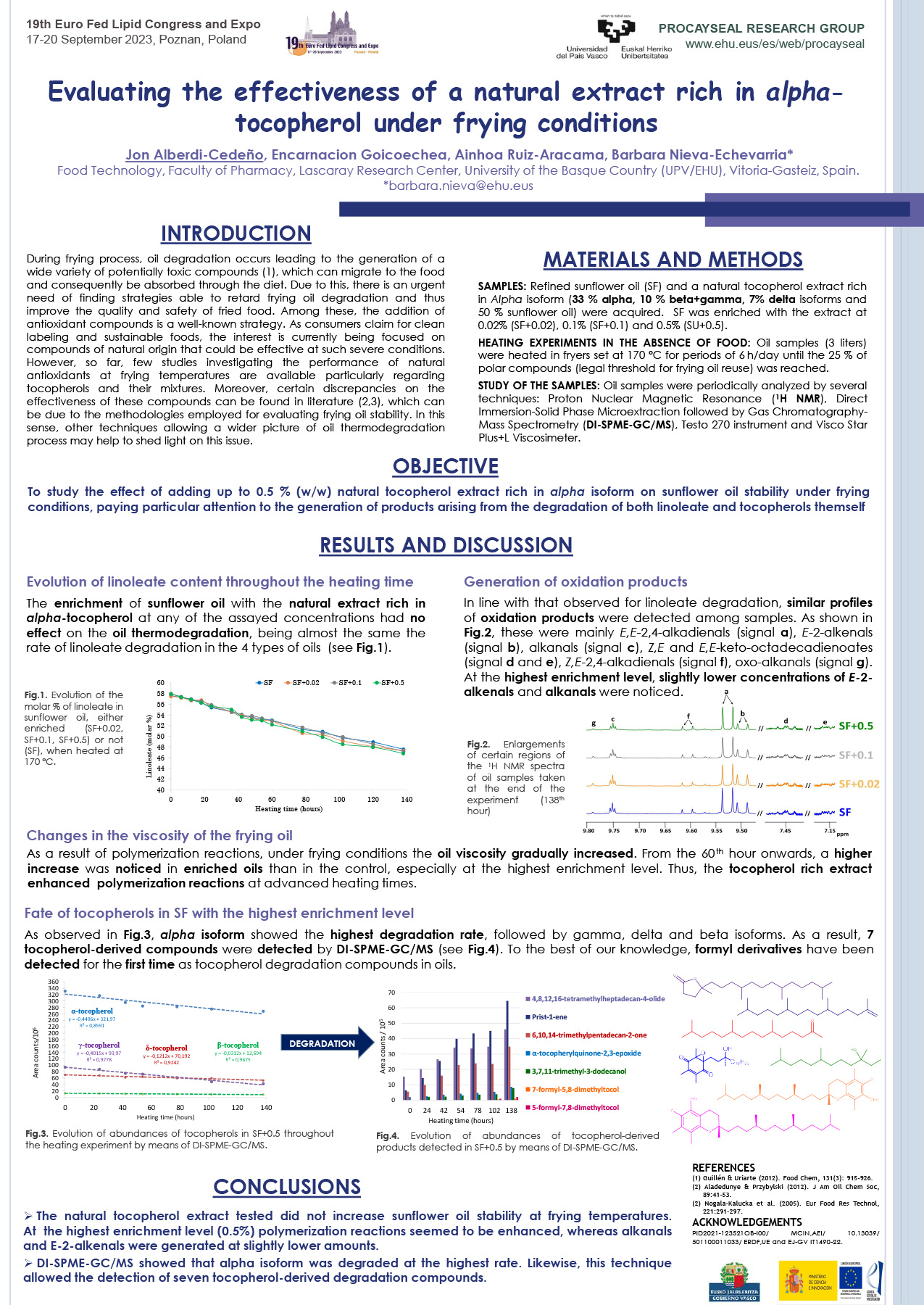During frying process, oil degradation occurs leading to the generation of a wide variety of potentially toxic compounds, which can migrate to the food and consequently be absorbed through the diet. Due to this, there is an urgent need of finding strategies able to retard frying oil degradation and thus improve the quality and safety of fried food. Among these, the addition of antioxidant compounds is a well-known strategy. As consumers claim for clean labelling and sustainable foods, the interest is currently being focused on compounds of natural origin that could be effective at such severe conditions. However, so far, few studies investigating the performance of natural antioxidants at frying temperatures are available.
Therefore, the effect of the enrichment of sunflower oil up to 0.5 % (w/w) natural extract rich in alpha-tocopherol was addressed, paying particular attention to the generation of products arising from the degradation of either linoleic acyl groups or the tocopherol itself. Oils were heated in fryers set at 170 ºC for periods of 6 h/day until the 25 % of polar compounds was reached. Sunflower oil samples were periodically taken and analyzed by several techniques: Proton Nuclear Magnetic Resonance (1H NMR), Direct Immersion-Solid Phase Microextraction followed by Gas Chromatography-Mass Spectrometry (DI-SPME-GC-MS) and Viscometer. Overall, the results showed that, under the conditions of this study, the enrichment of sunflower oil with the natural extract rich in alpha-tocopherol had no effect on the oil thermodegradation, being almost the same the rate of linoleic acyl group degradation in all the samples, as well as the nature and the amount of oxidation compounds coming from the former. However, oil viscosity increased into a higher extent when the extract was added, indicating an enhancement of polymerization reactions. Regarding tocopherol degradation at frying conditions, the generation of formyl derivatives was observed in the oil enriched with the highest concentration.
Acknowledgments: PID2021-123521OB-I00/ MCIN,AEI/ 10.13039/ 501100011033/ ERDF,UE and EJ-GV IT1490-22.
